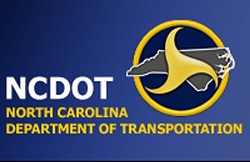
Special to Iredell Free News
A worldwide shortage of aluminum is forcing the N.C. Division of Motor Vehicles to indefinitely suspend its program to replace license plates that are older than six years. The move is being taken to help ensure there is enough material to produce first-time plates.
Normal first-time plate production is 400 to 500 a day. But the older plate replacement program, passed into law by the N.C. General Assembly, meant that figure this year has been about 10 times that number.
More than 640,000 replacement plates were produced in the first four months of this year, with about another 1.4 million projected to be needed for the rest of the 2021.
Corrections Enterprises, which handles the plate production, has enough aluminum on hand to make about 160,000 plates, and another shipment of the metal is expected around the middle of this month.
The replacement plates were automatically sent to customers when they renewed their registration of the older plates online or by mail, while customers who renewed at a local License Plate Agency office received their plates at that visit. There is no customer charge for getting the new plate.
There is no timetable for when the issuance of the replacement plates will resume, but if the suspension continues until late this year, it is likely the rest of phase one of the replacement program will be handled in 2022, with phase two moving back a year to 2023. The replacement of the plates was initially supposed to start July 1, 2020, but was pushed back to this year because of COVID-19 impacts.
Phase one of the replacement program covers regular vehicle and motorcycle license plates. The second year is for older specialty plates, including personalized plates, commercial, permanent, municipal and state-owned, for-hire, dealers, trailers and farm vehicles.



